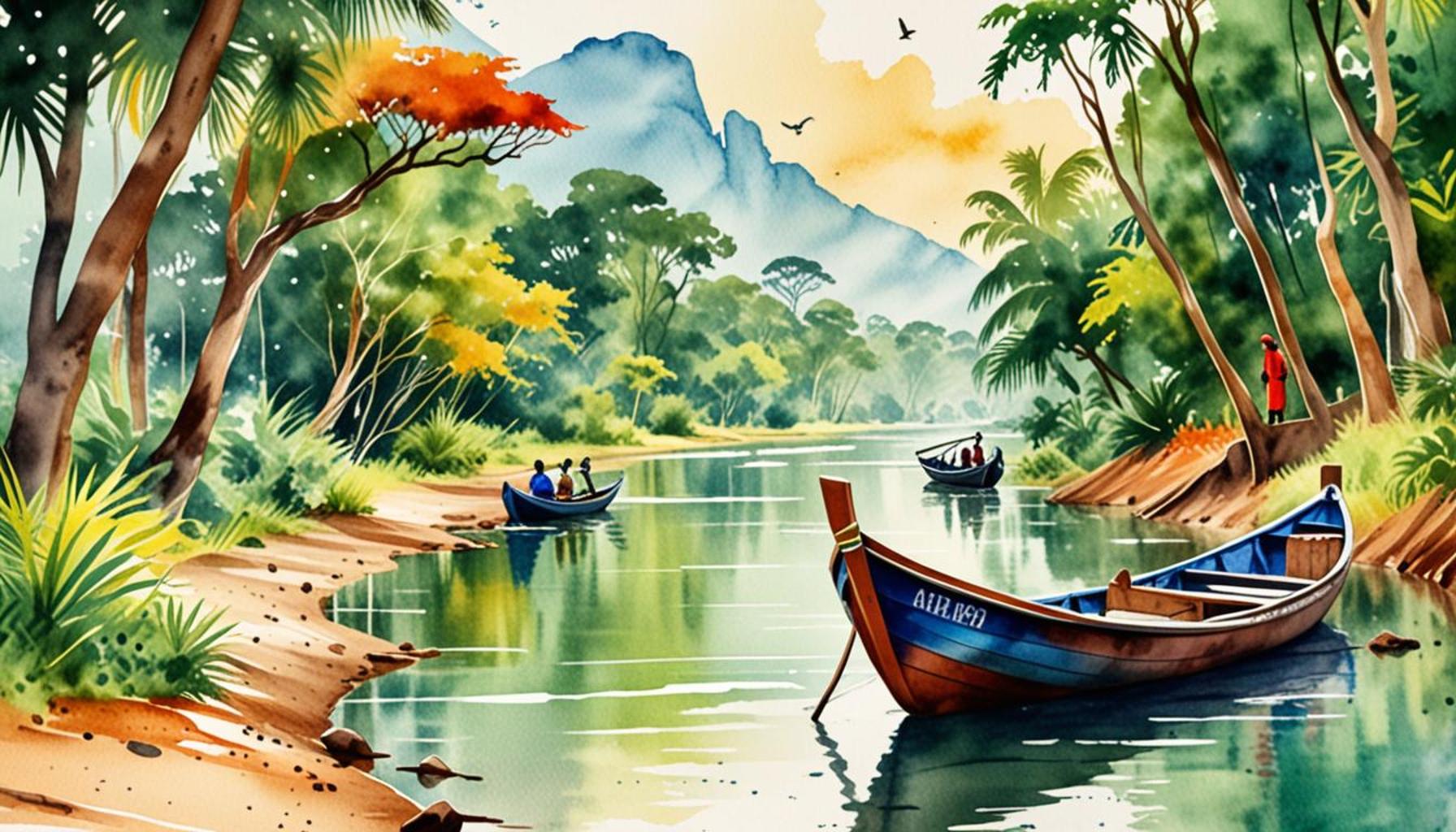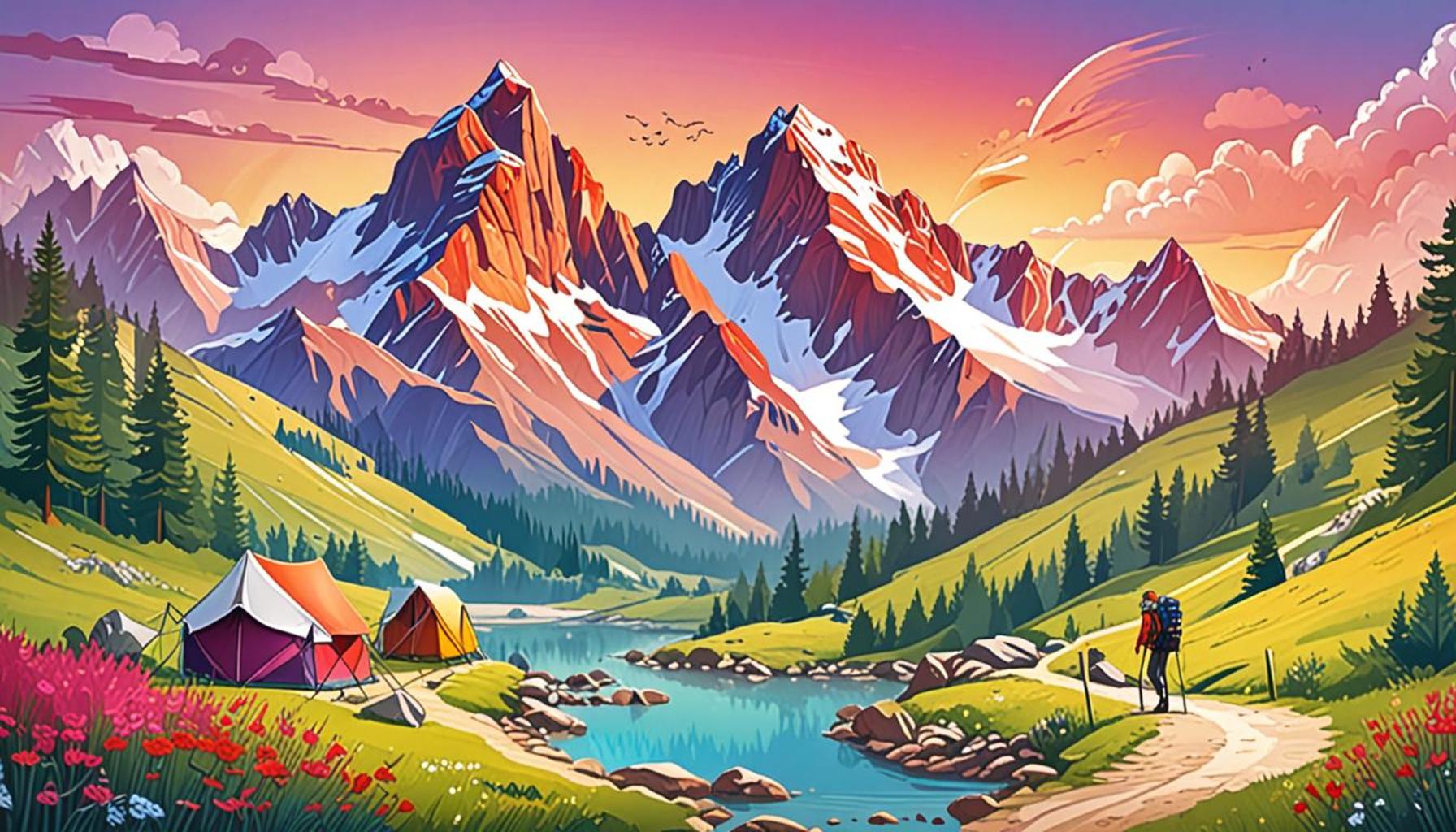Explore Northern Nigerias Cultural Routes A Travelers Guide

Discovering Northern Nigeria’s Cultural Tapestry
In recent years, Northern Nigeria has emerged as a captivating destination for avid travelers seeking to explore its rich cultural heritage. This region, often overlooked, is home to a diverse array of traditions, vibrant festivals, and historical landmarks that tell the story of its past. By delving into its cultural routes, travelers can experience a unique blend of history, art, and local customs.
- Cultural Diversity: Northern Nigeria is a melting pot of ethnic groups, each with its distinctive traditions.
- Historical Significance: Ancient cities such as Kano and Sokoto offer insights into the region’s historical trade routes.
- Vibrant Festivals: Experience colorful celebrations like the Durbar Festival showcasing equestrian skills and cultural displays.
As the desire for authentic travel experiences grows, understanding the cultural routes of Northern Nigeria becomes increasingly relevant. This guide aims to equip travelers with essential insights and recommendations necessary to navigate this fascinating region. Prepare to explore our carefully curated list of the Top 5 cultural routes that will enrich your journey and deepen your connection to the vibrant essence of Northern Nigeria.
Top 5 Cultural Routes in Northern Nigeria: A Traveler’s Guide
Northern Nigeria is a captivating region brimming with rich history and diverse cultures. Its cultural landscapes serve as a canvas painted with vibrant festivals, monumental architecture, and the footprints of ancient trade routes. For travelers seeking to unveil the charm of this region, these cultural routes offer a tapestry of experiences that reflect both the legacy and contemporary lifestyles of the people. Here, we explore the top five cultural routes and their historical and cultural significance, revealing the beauty of northern Nigeria.
5. The Historic City of Kano
Kano, one of Nigeria’s oldest cities, stands as a testament to centuries of trade, culture, and political influence. As a former stronghold on the trans-Saharan trade routes, Kano thrived on commerce in goods and ideas, shaping it into a bustling hub of cultural exchange. Today, it still retains much of that vibrancy, inviting visitors to step back in time while exploring its present.
One of the city’s greatest landmarks is the Kano City Wall. This impressive structure, dating back to the 14th century, once served as a formidable defense. Walking along the remaining sections of the wall, you can almost hear the echoes of history whispering the tales of traders and travelers who once passed through these gates.

Another remarkable site is the Kano Emir’s Palace. With its intricate Hausa architecture, the palace is a living museum that offers insight into the traditional governance and regal ceremonies of the past.
- Kano Durbar Festival: Held during Eid celebrations, this festival sees horsemen in vivid costumes, parading with such pageantry and skill that it mesmerizes onlookers. It’s a sight that not only celebrates but also sustains Kano’s chivalric traditions.
- Kano Central Market: Known as Kurmi Market, it brims with life and trade. Vendors exude endless energy as they offer textiles, crafts, and spices, each stall a mini-gallery of cultural heritage.
Kano seamlessly weaves the threads of the past with the vibrancy of the present, making it indispensable for any cultural enthusiast’s itinerary.
4. The Ancient City of Zaria
Zaria is another beacon of historical splendour. It offers a direct connection to Nigeria’s academic and cultural lineage. Home to the renowned Ahmadu Bello University, Zaria symbolizes the preservation and dissemination of knowledge, nurturing both the old and the new.
The Zazzau Emirate embodies traditional governance structures that continue to thrive, preserving stories and practices that have been handed down through generations. Zaria’s charm is not just in its institutions but also in its edifices, such as the ancient city walls which speak volumes of resilience and historical autonomy.
- Tudun Wada: Featuring unique Hausa architecture, this settlement serves as a living representation of Zaria’s traditions and architectural mastery.
- Kumaril Legon: A shrine that pays homage to legendary warriors, embodying the storytelling and spiritual traditions that are integral to the identity of the Hausa people.
In Zaria, the stories of past heroes, cultural pride, and the academic spirit merge, inviting travelers to delve into a rich cultural narrative.
3. The Calabash and Festival Town of Jalingo
Located in Taraba State, Jalingo is known for its vibrant cultural expressions and breathtaking landscapes. It serves as an open invitation to the world to experience its unique blend of nature and culture.
The town is famous for its Calabash Festival, an annual celebration that highlights the local tradition of intricate calabash carving. Artisans from far and wide gather to display their dedication to this ancient craft, while performances and dances enrich the festival experience.
- Nganzai Mountain: Offers a picturesque backdrop and a thrilling opportunity for hiking, providing stunning panoramic views of the region’s natural beauty.
- Local Cuisine: A journey through Jalingo is incomplete without sampling its unique culinary delights, such as traditional stews and dishes that reflect the agricultural bounty of the area.
In Jalingo, every festival, craft, and dish unfolds another chapter of a culture deeply interwoven with the land it inhabits.
2. The Traditional Homelands of the Tiv and Idoma
The Middle Belt region, home to the Tiv and Idoma communities, offers a richly woven tapestry of cultural traditions and experiences. Known for their distinct cultural identities, these communities bring ancient practices alive through celebrations and crafts.
The Tiv Cultural Festival is a celebration of the vivacity of the Tiv people, showcasing their traditional dances and music in a setting that is as educational as it is entertaining. This festival also highlights the beautiful crafts of the community’s artisans.
- Obudu Cattle Ranch: Neighboring the Tiv homelands, this destination offers breathtaking scenery, serene accommodations, and a chance to contemplate the diverse cultural heritage of the surrounding areas.
- Pottery and Craft Villages: Discover local artisans who practice traditional methods to create pottery and other crafts, fostering a tangible connection to the past.
Experiencing life among the Tiv and Idoma reveals the beauty of cultural diversity in Nigeria, connecting visitors with age-old traditions and a profound communal spirit.
1. The Legendary City of Sokoto
At the pinnacle of our cultural tour lies Sokoto, a city enveloped in the rich tapestry of Islamic history and scholarship. Once the heart of the influential Sokoto Caliphate, this city continues to thrive as a nucleus of Islamic education and culture.
Sokoto’s mosques and schools attract scholars and students from across the Islamic world, eager to learn from its extensive library of knowledge. The city’s significance is not only in its religious and academic contributions but also in its embodiment of historical and cultural alliances that have stood the test of time.
Additionally, the city hosts the Sultan’s Palace, a structure emblematic of historical governance, where visitors can learn about the esteemed line of Sultans that have guided the region.
Sokoto’s spiritual and educational relevance along with its allure as a cultural beacon makes it a compelling destination for anyone seeking to comprehend the historical and religious matrix of northern Nigeria.
Each of these cultural routes provides a unique lens through which to view northern Nigeria, offering various layers of history, celebration, and community. Whether you are drawn to ancient architecture, festivals, or traditional crafts, the routes through Kano, Zaria, Jalingo, the Tiv and Idoma lands, and Sokoto promise an unforgettable exploration of northern Nigeria’s cultural wealth.
| Cultural Practices | Significance |
|---|---|
| Traditional Festivals | These events showcase local art, music, and dance, providing travelers with a unique insight into the rich heritage of the region. |
| Handicrafts | The craftsmanship reflects the skills passed down through generations, allowing visitors to connect with local artisans and understand their stories through their creations. |
| Culinary Traditions | Exploring local cuisine offers an unparalleled taste of history, with dishes steeped in centuries-old rituals and cultural significance. |
| Folk Tales and Oral Traditions | These stories provide valuable insights into the values, beliefs, and history of the communities, making them an integral part of the cultural journey. |
| Attractions | Overview |
|---|---|
| Ancient Cities | The architecture and layout of these cities tell stories of historical significance and cultural evolution. |
| Museums | Local museums serve as vital sources of education and preservation of the region’s cultural heritage and artifacts. |
| Natural Landscapes | The breathtaking views and diverse ecosystems reflect the natural beauty that complements the cultural richness. |
| Cultural Centers | These centers often host workshops and exhibitions that immerse travelers in local customs and practices. |
The cultural fabric of Northern Nigeria is interwoven with a rich tapestry of traditions, practices, and attractions that beckon travelers to explore further. Each festival, story, and item crafted by skilled hands contributes not only to the region’s identity but also to a shared human experience that invites all to partake in its beauty. The local gastronomy tells tales of the land, connecting visitors to the essence of its historic landscape. Each visit paves the way for meaningful interactions, fostering understanding and appreciation for this extraordinary part of the world.
Frequently Asked Questions
What are the key cultural sites to visit in Northern Nigeria?
Northern Nigeria is rich in cultural heritage, with numerous sites that attract both local and international visitors. One of the most noteworthy is the ancient city of Kano, home to the historic Gidan Makama Museum and the magnificent Kano City Wall. The city of Zaria also boasts the impressive Zaria City Gates and the beauty of the Emir’s Palace. For those interested in architecture and history, the UNESCO World Heritage site of Sukur Cultural Landscape in Adamawa State offers an intriguing glimpse into traditional African society. Each of these sites provides a unique opportunity to explore the region’s deep-rooted history and culture.
What is the best time to visit Northern Nigeria for cultural events?
The ideal time to visit Northern Nigeria for cultural experiences is during the festival periods, usually between January and March, or October and December. One of the highlights is the Durbar festival, celebrated in several cities, which involves a parade of horsemanship and vibrant displays of regional attire and music. It’s also wise to check the local calendar for events specific to the area you are visiting, as these can vary. Remember that the climate in Northern Nigeria is typically hot and arid, so planning your travel during the cooler months can provide a more comfortable experience.
Is it safe to travel to Northern Nigeria as a tourist?
Safety can be a concern for tourists traveling to Northern Nigeria, primarily due to regional conflicts in certain areas. However, many parts remain safe for tourists, but it is crucial to stay informed and update travel plans according to current advisories from reputable sources like your country’s foreign office. Engaging with a local guide can also enhance your safety as well as enrich your cultural exploration of the region. Always ensure to comply with local customs and restrictions.
How can I experience the local culture authentically in Northern Nigeria?
To experience Northern Nigeria’s culture authentically, consider staying in locally owned accommodations or with host families that offer home-stay options. Participate in local markets, try traditional Hausa foods like tuwo shinkafa with miyan kuka, and attend cultural performances or workshops. Engaging with local communities through volunteer opportunities or tours led by local guides can provide deeper insights into daily life. Learning a few phrases of Hausa, the predominant language, can also enhance your interactions with locals.
What should I consider when planning my itinerary for Northern Nigeria?
When crafting your itinerary for Northern Nigeria, prioritize visits to historical landmarks, local markets, and cultural festivals. Allocate time for exploring rural areas, which can offer a more in-depth understanding of traditional lifestyles. Keep in mind the need for modest clothing in accordance with local customs, and plan for reliable transportation between sprawling areas. Always check weather conditions and prepare for variations, as these can influence travel plans significantly. Remember, flexibility in your schedule will allow for spontaneous cultural discoveries, enriching your journey.
Conclusion
Exploring the cultural routes of Northern Nigeria offers travelers a striking balance between captivating history and vibrant traditions. This region, boasting a rich diversity of ethnic groups and historical landmarks, invites tourists to dive deeply into its tapestry of experiences. From the grandiose Emir’s palaces to the lively traditional markets, each stop on the journey unveils a unique blend of the past and present.
The historical significance of sites like the ancient city of Kano and the cultural festivals of the Hausa people provide an opportunity for travelers to connect with local heritage. These encounters foster a deeper understanding of the region’s history and customs. Moreover, the hospitality of the local communities enriches the travel experience, allowing visitors to engage beyond mere sightseeing.
The article’s top recommendations focus on must-visit locations such as the Sacred Forests, the famous Zaria City Walls, and Nigeria’s oldest institute of higher learning, Ahmadu Bello University. These landmarks, rich in cultural narratives, are essential stops for any culturally curious traveler.
Incorporating these cultural routes into your itinerary not only supports local economies but also enriches the overall travel experience, creating lasting memories and fostering cultural appreciation. Discovering Northern Nigeria’s cultural wealth opens avenues for further exploration and understanding, offering new perspectives on the country’s diverse legacy. As you plan your next adventure, consider delving into these significant routes, where every story encountered will undoubtedly become a memorable part of your travel narrative.


